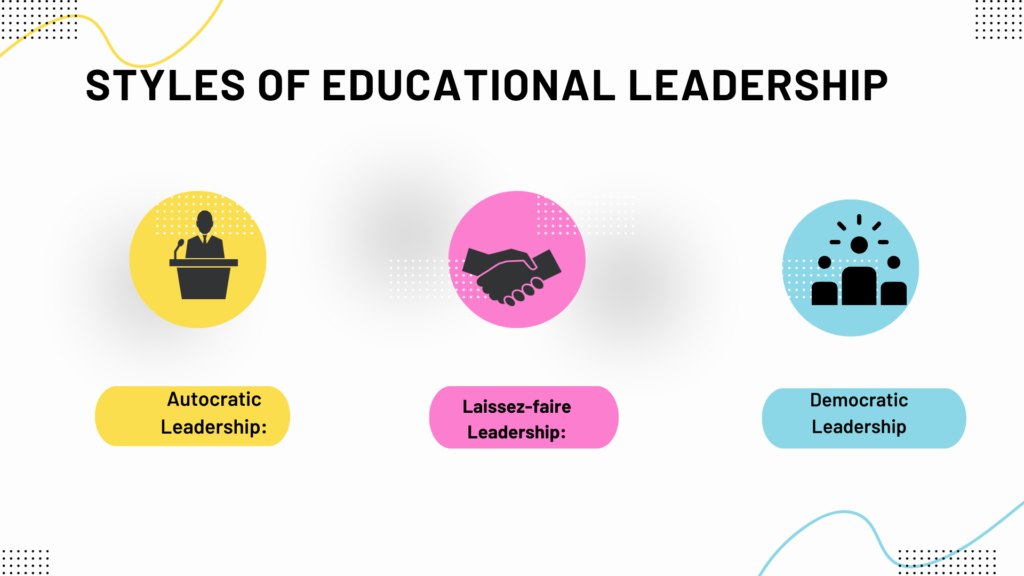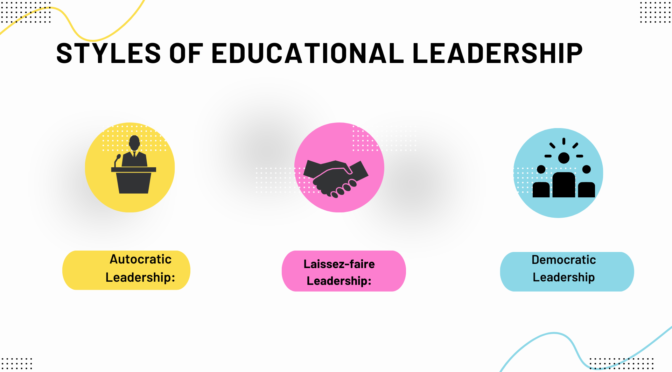Educational leadership encompasses various styles, and three commonly discussed styles are autocratic, laissez-faire, and democratic. The styles of Educational Leadership reflect the approaches and behaviors of leaders in educational settings. It’s important to note that leaders may employ a combination of these styles based on the situation and context.
Autocratic Leadership:
Characteristics:
- Centralized decision-making: The leader makes decisions without much input from others.
- Strict control: The leader has a high level of authority and may closely monitor and direct the work of subordinates.
- Limited collaboration: Communication flows primarily from the leader to subordinates.
Application in Education:
- Used in situations where quick and decisive action is needed.
- Common in emergency situations or when a clear chain of command is essential.
Also Read : School Organization and Management
Laissez-faire Leadership:
Characteristics:
- Hands-off approach: Leaders provide minimal guidance and allow subordinates a high degree of autonomy.
- Limited direct involvement: Leaders may be less involved in day-to-day operations and decision-making.
- Decentralized decision-making: Subordinates have more freedom to make decisions.
Application in Education:
- Effective in situations where individuals are highly skilled and self-motivated.
- Fosters creativity and innovation by giving educators the freedom to explore new teaching methods.
Democratic Leadership:
Characteristics:
- Shared decision-making: Leaders involve others in the decision-making process, seeking input and feedback.
- Collaboration: Encourages open communication and teamwork among leaders, teachers, and other stakeholders.
- Empowerment: Aims to empower team members by valuing their opinions and contributions
Application in Education:
- Effective in promoting a positive school culture and fostering a sense of community.
- Encourages teacher involvement in decision-making, which can enhance commitment and job satisfaction
Also Visit : Prep with Harshita



Hello There. I found your blog using msn. This is a really well written article. I will make sure to bookmark it and come back to read more of your useful info. Thanks for the post. I抣l certainly comeback.